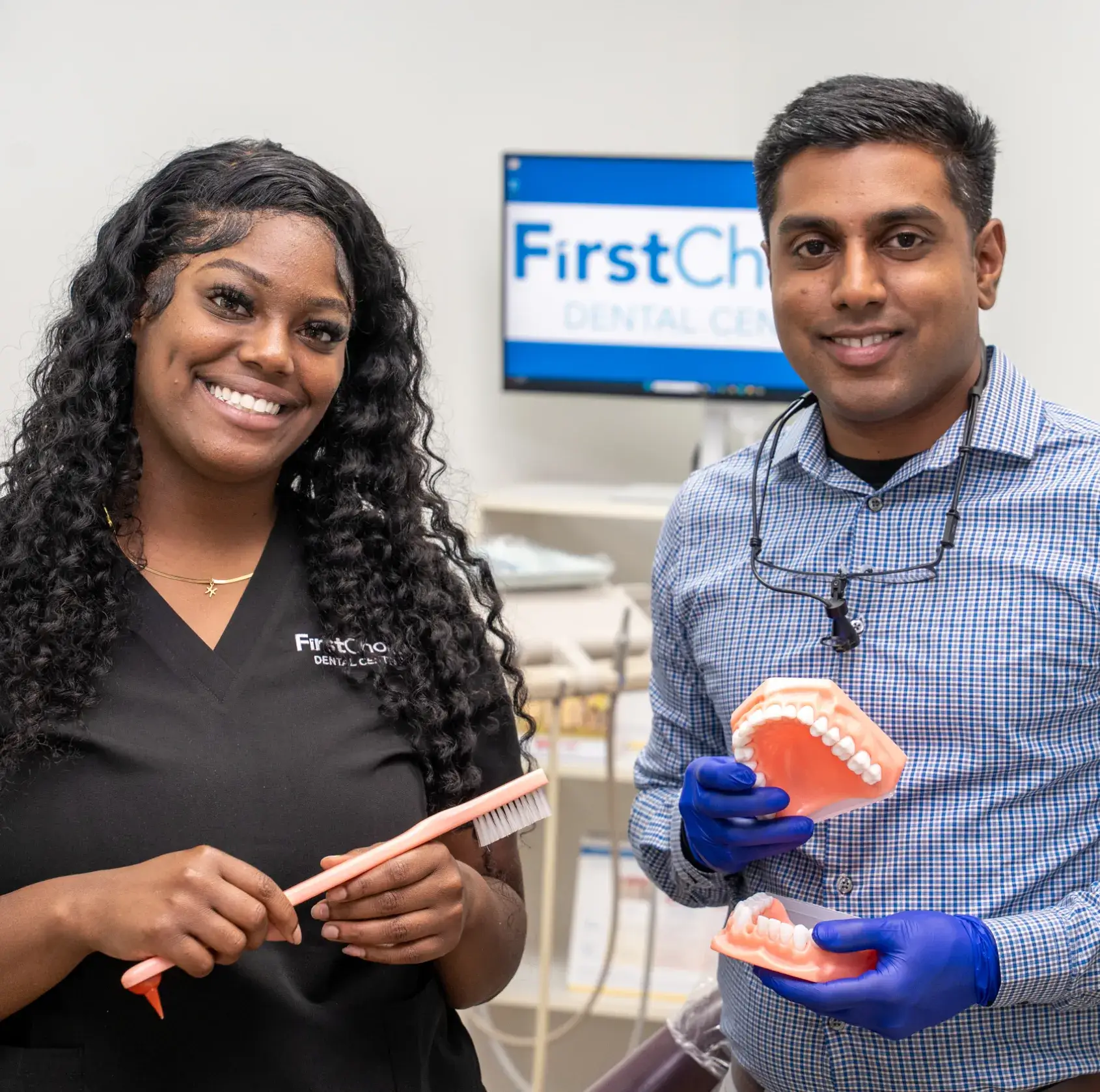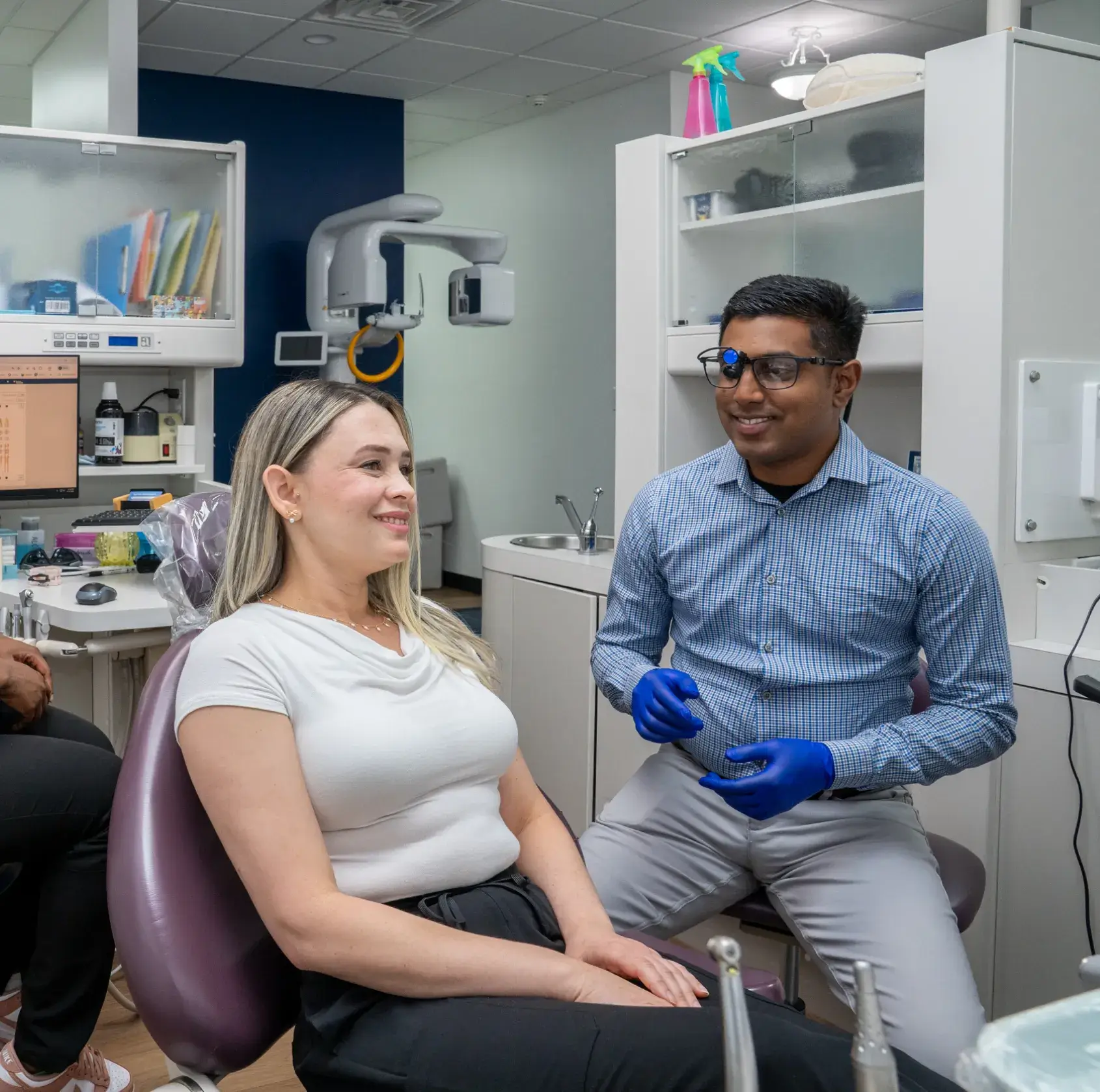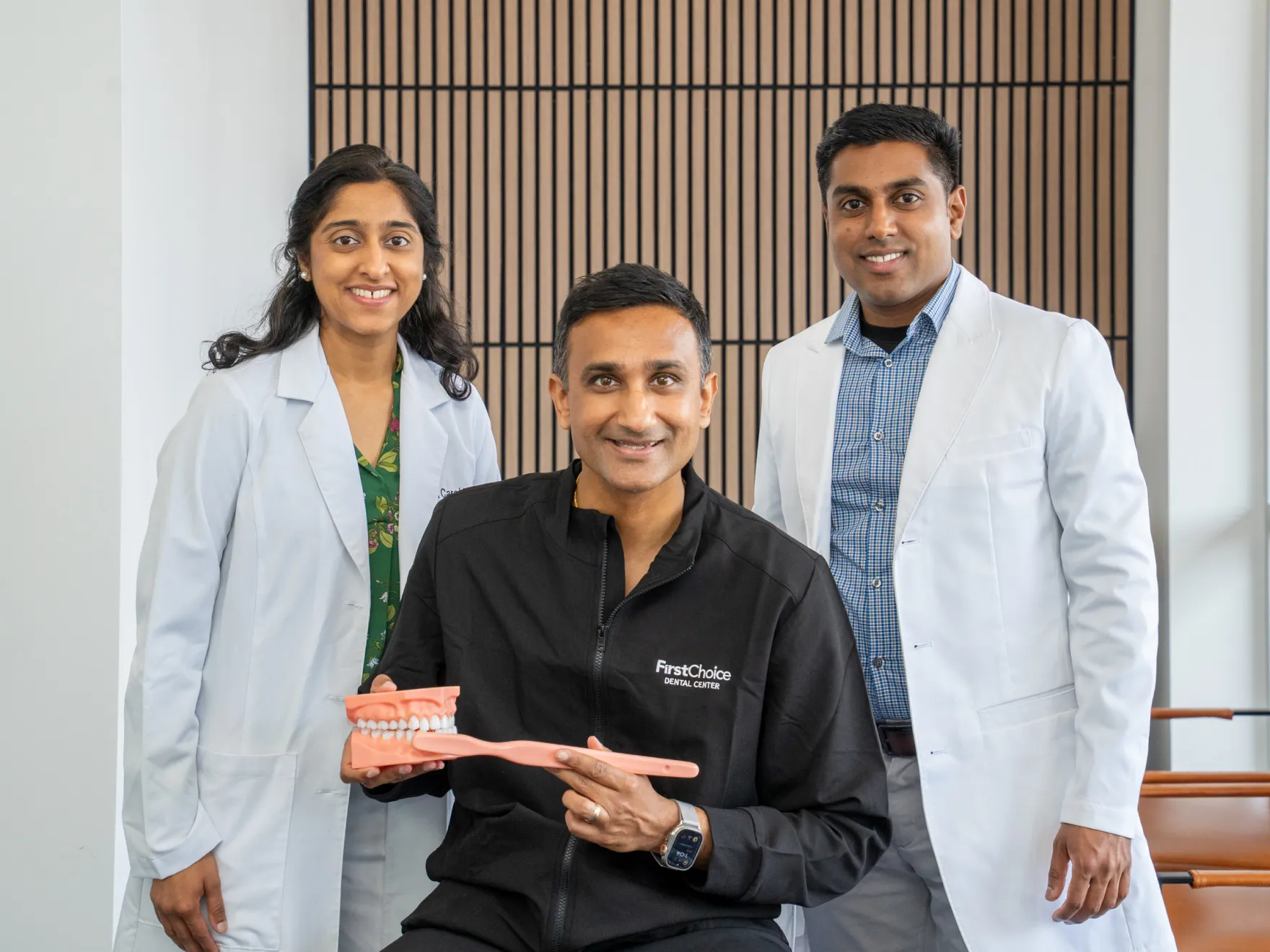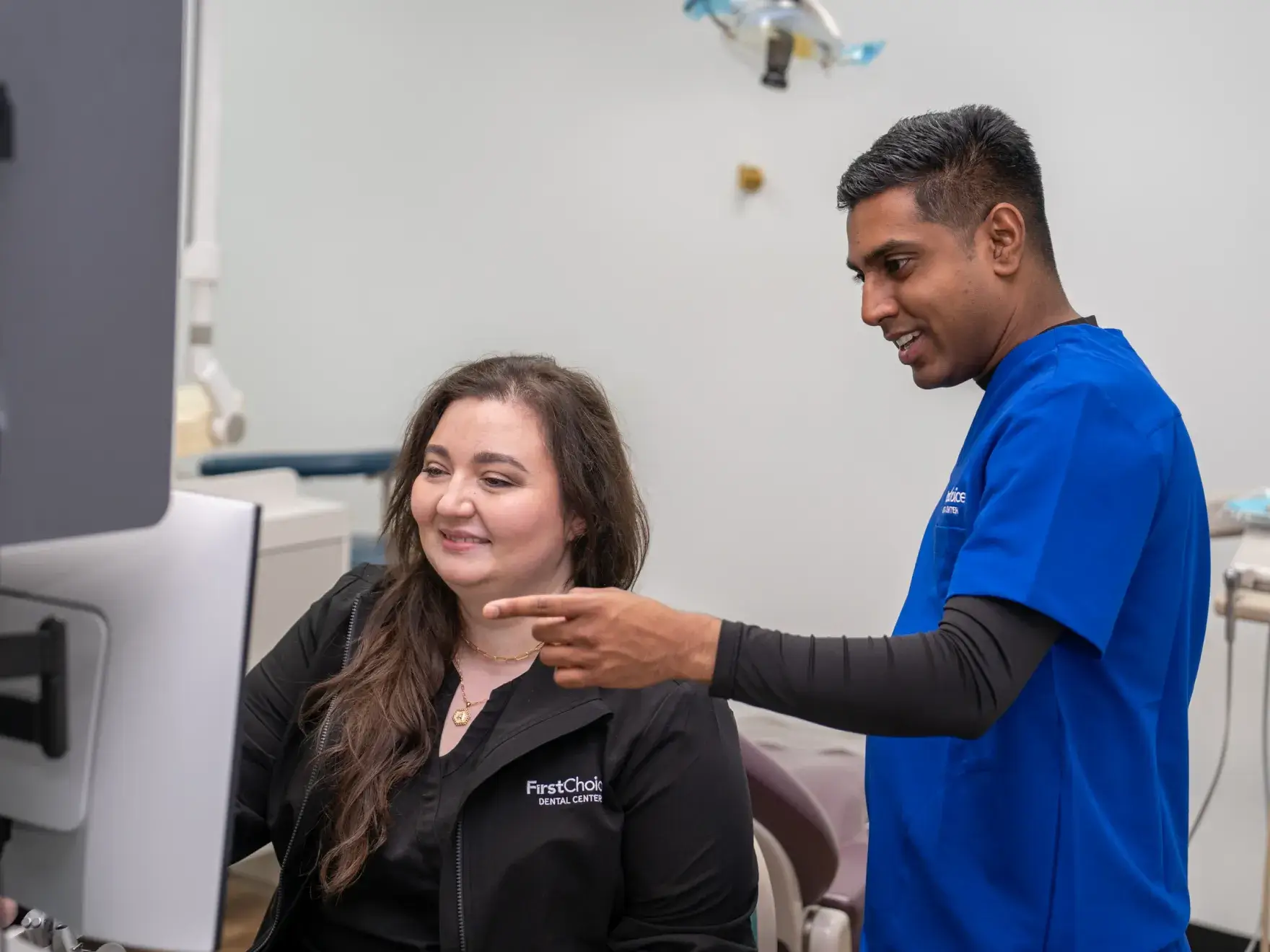
Air abrasion is a new micro-dentistry technique that is used to treat tooth decay and prepare teeth for restorations. Traditionally, dentists used noisy dental drills to remove decay and prepare the teeth for fillings, but air abrasion has proven to be a noiseless, heatless, minimally invasive alternative. Air abrasion is similar to sandblasting, in that tiny particles are propelled toward small areas of decay to remove them. A filling is then applied to seal the tooth from further harm.

As with many dental procedures, air abrasion is not necessarily suitable for every person. The best candidates for air abrasion are patients who are fearful of the dental drill, children, and individuals with minimal dental decay. Regular dental check ups help diagnose cavities that may be forming on the surfaces of the teeth. Spotting cavities early increases the chances that the air abrasion treatment can be utilized.
Air abrasion can be used in instances other than tooth decay, including the removal of existing composite fillings, the preparation of teeth for sealants and the removal of surface stains on teeth. Amalgam and silver fillings cannot be used in conjunction with air abrasion because the procedure leaves the teeth too smooth for metal fillings to properly adhere. Therefore, only composite fillings can be applied following air abrasion.
Each with their own advantages and disadvantages. You and your dentist can discuss the best options for restoring your teeth. Composite fillings, along with silver amalgam fillings, are the most widely used today. Because composite fillings are tooth colored, they can be closely matched to the color of existing teeth, and are more aesthetically suited for use in front teeth or more visible areas of the mouth.
As with most dental restorations, composite fillings are not permanent and may someday have to be replaced. They are very durable and will last many years, giving you a long-lasting, beautiful smile.

They are highly durable and will last many years, but like most dental restorations, they may eventually need to be replaced. Porcelain crowns are made to match the shape, size, and color of your teeth, giving you a long-lasting, beautiful smile.
Reasons for crowns:
Fixed bridges and removable dentures and partials only replace the missing teeth, but do not impact overall oral health. Dental implant-retained restorations, however, provide multiple benefits, such as:
Dental implants provide a comprehensive solution that is long-lasting and effective. We utilize aesthetic materials to fabricate your implant restorations. This allows for your treatment to not only restore function and comfort but also look and feel natural. The number of missing teeth will prompt the type of restoration needed to restore the smile. The restorations at our practice include:
A conventional type is made after the teeth have been removed and the gum tissue has healed (usually takes 4 to 6 weeks). During this time, the patient will go without teeth. Immediate dentures are made in advance and immediately placed after the teeth are removed, thus preventing the patient from having to be without teeth during the healing process. Once the tissues shrink and heal, adjustments will have to be made. Dentures are very durable appliances and will last many years but may have to be remade, repaired, or readjusted due to normal wear.
It is normal to experience increased saliva flow, some soreness, and possible speech and chewing difficulty, however this will subside as your muscles and tissues get used to the new dentures.

Invisalign clear aligners use the most advanced technology to give you your best smile yet. Using a series of aligners made with advances, such as proprietary SmartTrack material, Invisalign treatment can straighten your teeth with 75% more predictability. Plus, your smile is shaped more comfortably than with braces.
Your lifestyle isn't interrupted, meaning you can still enjoy the activities you love and the foods you can't live without. All with no unexpected trips to the doctor due to broken wires or brackets.
Invisalign clear aligners can treat a wide range of teeth straightening conditions such as crossbite, crowding, open bite, gapped teeth, overbite, and underbite. Using the most advanced technology, Invisalign treatment corrects simple to complex cases.
They can often be alternatives to crowns and the ideal solution in treating many dental conditions. As with most dental restorations, veneers are not permanent and may someday need replacement. They are very durable and will last many years, giving you a beautiful long-lasting smile.
